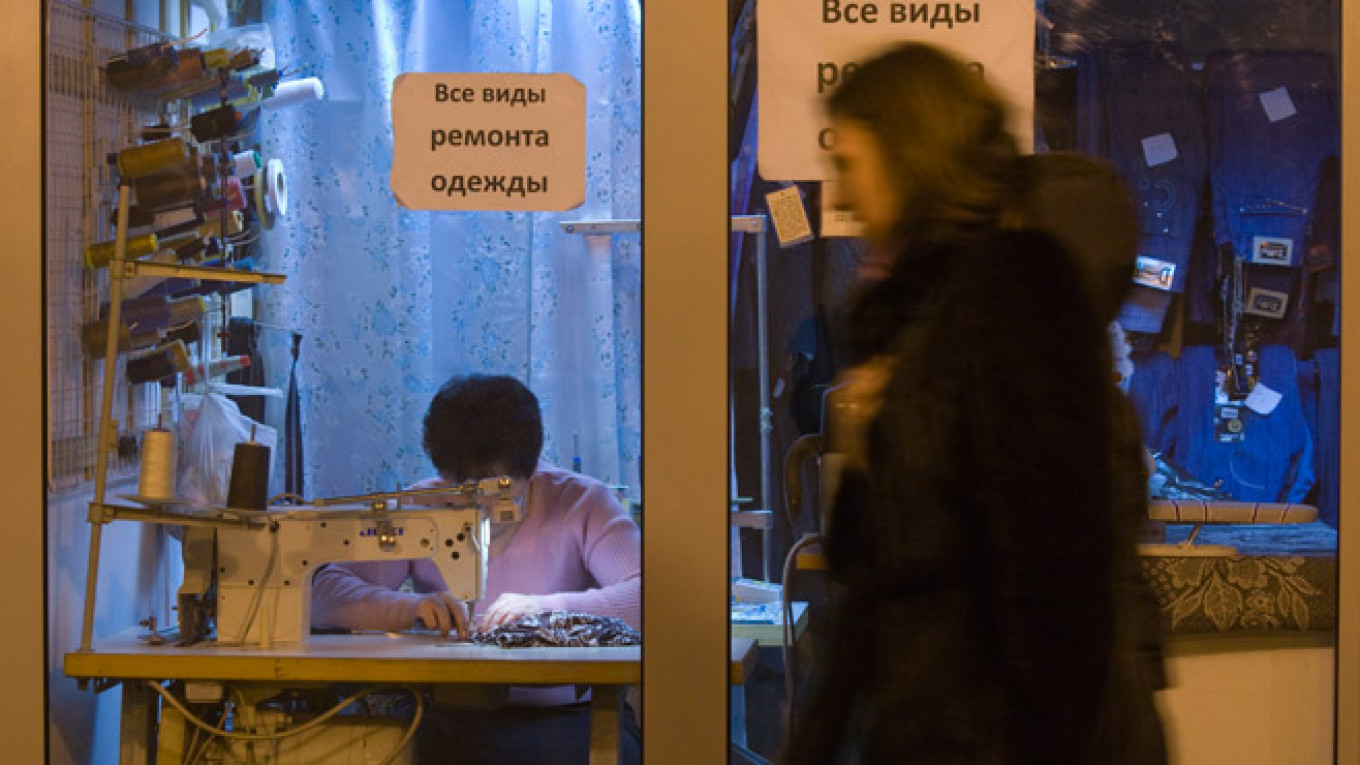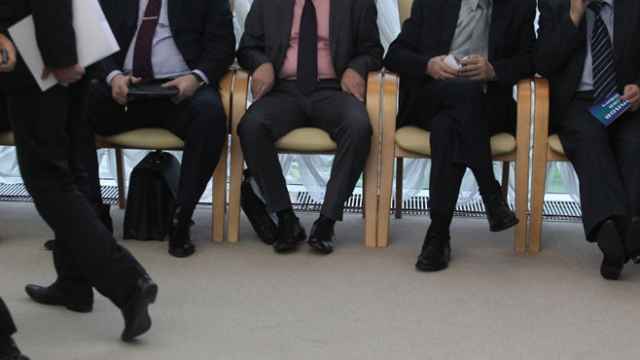Even as Russia's wins plaudits for improving its overall business climate amid Western sanctions, surging inflation and an economic slump, small and medium-sized companies are folding at a faster rate than ever.
Russia climbed 30 places to rank 62nd in the World Bank's annual "Doing Business" rating, released last week. In the "starting a business" category, Russia leaped 24 positions.
But this is cold comfort local business. Executives at small firms are pessimistic about the business climate they are working in and are doubtful of changes for the better in the near term, according to a small business index compiled by financial consultancy PSB Research.
The index was based on a survey of entrepreneurs over the third quarter of this year representing almost 2,000 small and medium-sized companies involved in sales, manufacturing and service industries in 19 Russian regions.
It showed that companies are struggling to raise finance and are not planning new investment.
Larger companies on the cusp of big business still manage to see silver linings in the economic clouds, Promsvyazbank president Artyom Konstandyan said at a presentation of the index at conference organized by Russian business lobby Opora last Thursday.
"But as companies get smaller, business activity and attitudes become more and more negative," he said. This is a worrying sign Konstandyan said: Small business is a fine-tuned barometer that reacts to changing economic realities first, sending warning signals to bigger companies.
Small and medium-sized companies expected a decline in their sales volumes and revenue this year, the index said.
Whereas in developed Western economies small businesses' share of gross domestic product can be as high as 70 percent, in Russia the figure is roughly 20 percent. And despite government support programs to reverse the trend, experts say this number is only decreasing.
Surprisingly, inflation, which has accelerated from around 5 percent to over 8 percent as oil prices weaken Russia's ruble and food import bans raise prices, was welcomed by businesspeople as a chance to increase prices.
Costs meanwhile have grown sharply, thanks in large part to a weaker ruble raising the cost of imports — the biggest negative impact revealed by the survey.
Western sanctions imposed on Moscow earlier this year, which have forced some of Russia's biggest companies to seek aid from the government, were not hurting small and medium-sized business, most of the businesspeople at Thursday's presentation said. Indeed, over a quarter said sanctions could potentially be beneficial for Russia's economy.
Across the country, business activity was highest in the republic of Bashkortostan and the Krasnoyarsk and Rostov regions, the survey revealed. Activity in Moscow stayed unchanged, while St. Petersburg recorded below-average activity.
Contact the author at [email protected]
A Message from The Moscow Times:
Dear readers,
We are facing unprecedented challenges. Russia's Prosecutor General's Office has designated The Moscow Times as an "undesirable" organization, criminalizing our work and putting our staff at risk of prosecution. This follows our earlier unjust labeling as a "foreign agent."
These actions are direct attempts to silence independent journalism in Russia. The authorities claim our work "discredits the decisions of the Russian leadership." We see things differently: we strive to provide accurate, unbiased reporting on Russia.
We, the journalists of The Moscow Times, refuse to be silenced. But to continue our work, we need your help.
Your support, no matter how small, makes a world of difference. If you can, please support us monthly starting from just $2. It's quick to set up, and every contribution makes a significant impact.
By supporting The Moscow Times, you're defending open, independent journalism in the face of repression. Thank you for standing with us.
Remind me later.






